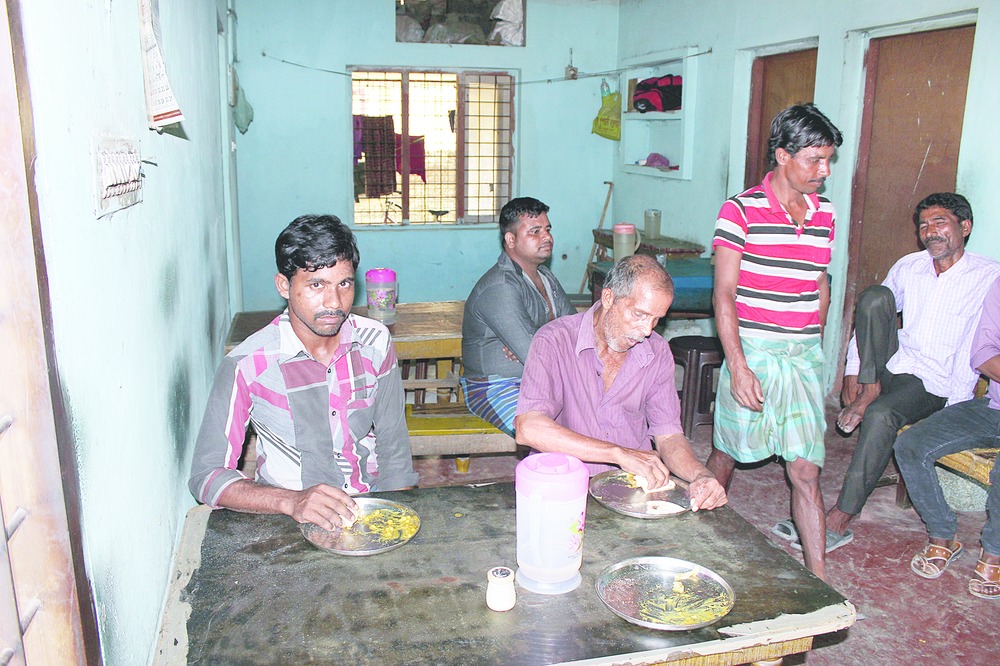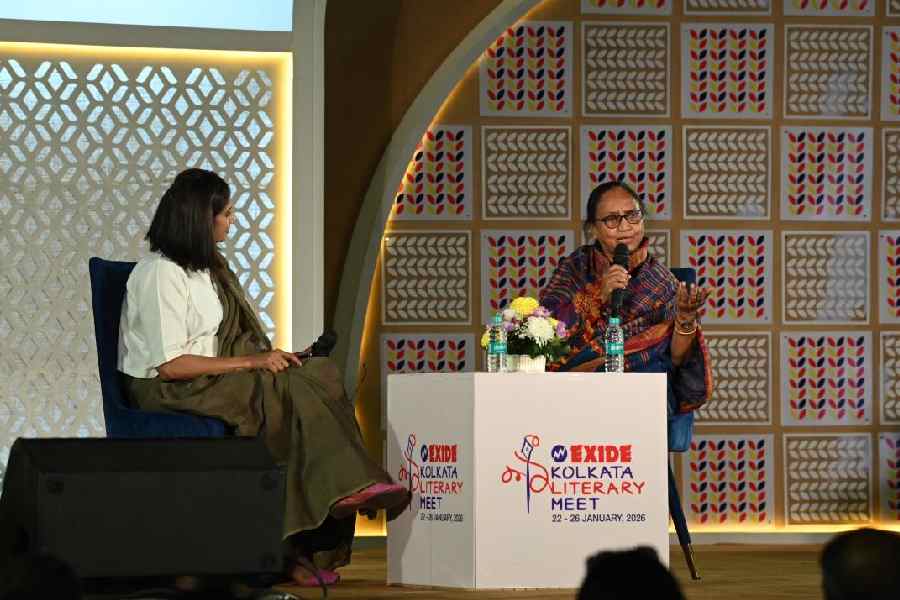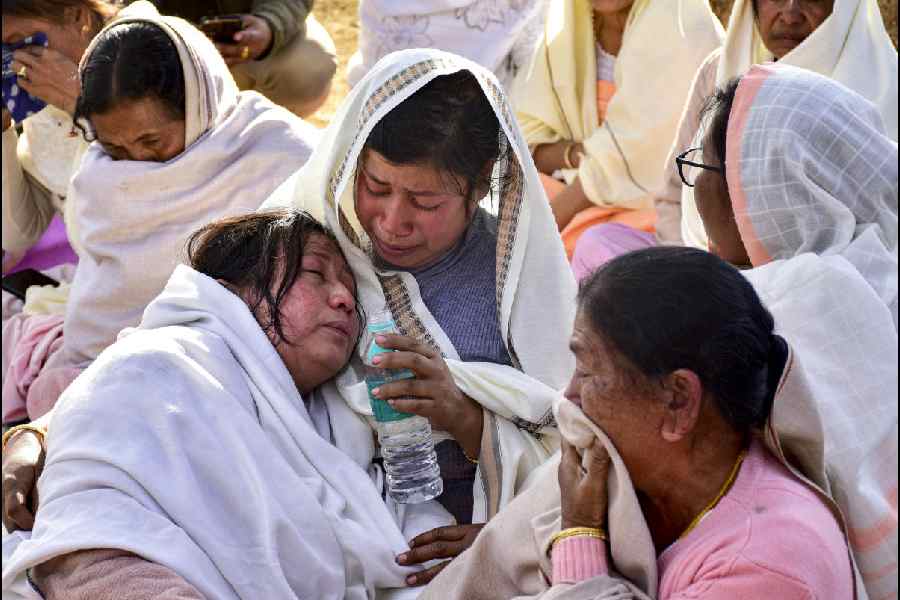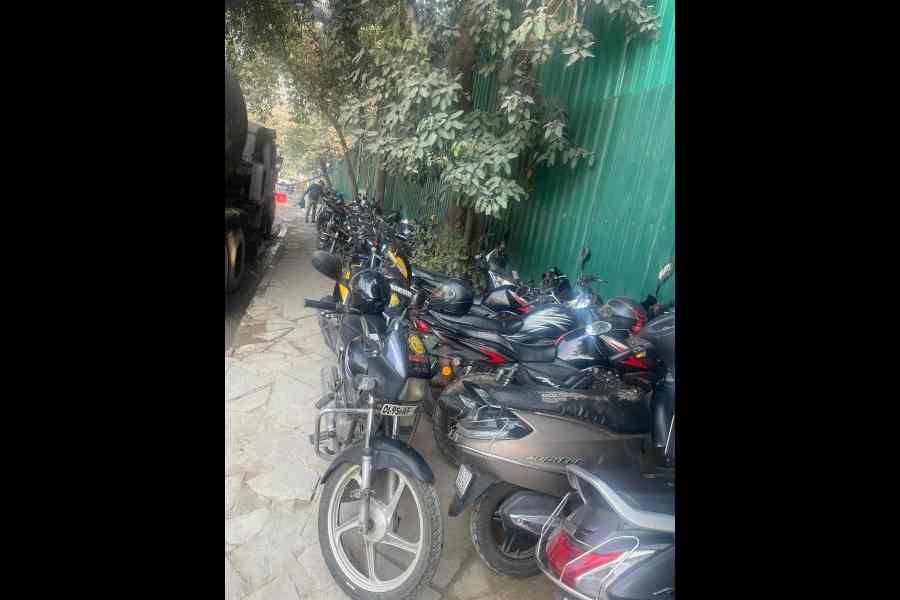
Pics: T.V. Jayan
Didi's electoral battle doesn't interest Dilip Kumar Sardar much - the Bengali from South 24-Parganas is more involved in the polls in Kerala. Sardar and his wife, Manju, employed in a tea processing plant in the hill town of Nelliyampathy in Palakkad district, are registered voters in Kerala.
According to some estimates, about 6 lakh labourers in Kerala are Bengalis who have migrated to the southern state in search of work. Pockets in Ernakulam, Palakkad and Thiruvananthapuram are like little Bengali enclaves.
Small eateries serve maachher jhol and tiny shops sell Bengali videos and music to keep the migrants happy. Signboards - for rooms on rent, for example - are often in Bengali, and autorickshaws drive by blaring messages in Bengali about special cultural shows.
But with state Assembly elections in Bengal and Kerala, quite a few of the Bengali labourers are thinking of their constituencies back home. Not too many Bengalis are on the voters' list in Kerala.
Take Jakir Hossain, who works as a mason in Perumbavoor, a town 35 kilometres from Kochi. He is registered in Bengal, but couldn't go home to vote.
"I didn't go because I went home just some months ago," says 25-year-old Hossain, who has been living and working in Kerala for 10 years.
Hossain and hundreds of thousands like him work as labourers in Kerala. The state's own workforce has migrated to the Gulf in large numbers for better prospects. Not many who are left in the state want to do manual work. And it is this demand for workers that is being met by people from Bengal, Bihar, Odisha and Assam.
For most workers, Kerala is a good place to be working in. The daily wage in Kerala is more than double than in other states. Living conditions are far better in Kerala than in their home states, even though by Kerala standards, they are not up to the mark. Not surprisingly, people like the Sardars are seeking to make Kerala their home.
Last year, with a little help from members of a trade union the Sardars are a part of, they managed to enrol themselves as voters in Kerala, just in time for the panchayat elections in October. "We intend to vote in the Assembly elections on Monday," Sardar, 37, says, adding that some 25 Bengali families - all of them plantation workers - in Seethargundu in Palakkad's Nenmara Assembly constituency have voting rights in Kerala.

But few among the 30,000 who live and work in Kannanthara, on the outskirts of Perumbavoor, have voting rights in Kerala. "Some of them travelled back home to exercise their franchise, but most stayed back," says Vipul Sheikh, who is from Murshidabad and runs a shop in Kannanthara selling products of daily use.
"The travel would entail a lot of money," explains 45-year-old Mainul Mondal, whose village falls in the Hariharpara constituency of Murshidabad district. "Moreover, it would mean loss of work for many days," says Mondal, who works as a helper with a construction contractor, as he finished a typical Bengali meal in a Bengali mess in Kannanthara.
According to A. Arunkumar, senior assistant manager with the Poabs Estates in Nelliyampathy, where the Sardars are employed, about 350 Bengali families live and work in the estate. "Most of them are temporary workers and have travelled back to Bengal for the elections. Work is yet to pick up as the monsoon is still to arrive," he says.
Life may get easier for many of the Bengali workers in Kerala in the future. The Supreme Court, acting on a writ petition filed in 2013, has asked the Election Commission of India and the central government to explore the possibility of allowing migrant labourers to vote in elections in their home states without leaving their places of employment.
Analyses of electoral rolls in India have shown that 12-15 per cent of voters in India are migrants and most of them find it difficult to go back home to vote - for reasons such as not being able to get leave, cost of travel and so on.
A study carried out by the Gulati Institute of Finance and Taxation (GIFT), Thiruvananthapuram, in 2013 states that there are over 25 lakh domestic migrant labourers in the state. Every year, an additional 2.35 lakh new migrants land up looking for work. They send back home Rs 17,500 crore on an average every year.
There is hardly any sector where migrant labour is not employed. They work in restaurants, brick kilns, veneer and plywood factories, and saw mills. They are much sought after in the farm sector - they harvest coconuts and tap rubber sap as efficiently as their local counterparts. Most contractors, who undertake public work as well as private projects, tend to employ migrants because they work for less money and for longer hours than local workers.
The state labour and rehabilitation department, however, states that less than 50,000 workers are registered with it. "As the process of registration is voluntary, very few come forward to register their names," says deputy labour commissioner R. Pramod.
The GIFT study recommended to the state government that efforts be made to improve the housing and living conditions of migrants, many of whom live in ghettos that have mushroomed on the outskirts of cities or towns where they work.
The state government has initiated a project to set up labour camps in different parts of the state. The first such camp, being set up at a cost of Rs 20 crore, is to come up soon in Palakkad, says Pramod.
According to an official with the state election commission, one reason why not many have been given voting rights, despite living in Kerala for years, is the fact that their addresses change as they keep moving from place to place as they change jobs.
K.N. Gopinathan, a trade union leader from Ernakulam, agrees. "They are constantly on the move, looking for better paying jobs and improved living conditions. While that is not bad, it makes enumeration a difficult proposition," he says.
But in any case many migrants don't want voting rights in Kerala, preferring to go back home to vote. "They do not want to replace their voter identity cards issued in their native states with new ones from their place of residence. For more than 80 per cent of these labourers, the voter card is the only document of identification. It is quite understandable that they do not want to part with it," the EC official says.
He points out that even political parties in the state are wary of getting the migrant labourers enrolled as voters as they fear the influx can change the electoral dynamics in the state.
But changes are happening, with people from Bengal calling Kerala their new home. And though language is a big barrier, there are many similarities, too - especially when it comes to politics. This year, however, there is a difference, as the two warring parties in Kerala fight a united battle in Bengal. But the Sardars have no problem with that - they know which way their vote is going.










